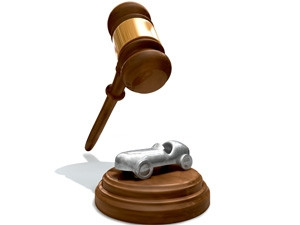
Business Against Crime SA (BACSA) has denied its vehicle tracking technology is being used by agents in unmarked vehicles sent by banks to repossess cars.
This follows a report in The Star yesterday, in which a Wesbank spokesperson claimed it uses a vehicle registration identification system as a joint initiative with BACSA, the South African Police Service (SAPS) and other banks to repossess cars.
According to the report, banks are sending out agents in unmarked cars with licence plate identification cameras to seize cars using official court orders. The cameras form part of the International Vehicle Identification Desk (Ivid).
The paper said the unmarked vehicles have been dubbed as "camera cowboys" by the debt collection industry.
Not involved
BACSA says the Wesbank representative incorrectly stated it is using the Ivid system as a joint initiative between BACSA and the SAPS.
"BACSA would like to state that the Ivid system is not involved in the Automatic Number Plate Recognition (ANPR) and Joint Information System (JIS) public-private partnership with the SAPS. We would further like to state that the information queried by these vehicles are from datasets supplied and maintained by the banks; BACSA does not have access to this data," it says.
BACSA further states that only if a case involving one of the vehicles is being investigated by the SAPS would the information about that vehicle be queried via the ANPR/JIS as the vehicle would then be identified as a vehicle of interest.
"BACSA cannot support an initiative that has no direct criminal aspect as it is not in our mandate."
It adds that in the past, mobile ANPR vehicles were operated as part of the initiative. "The SAPS were always present to react to a positive sighting. Various traffic law enforcement agencies do make use of mobile ANPR technology, and as law enforcement officers they are adequately trained and equipped to respond to a positive sighting."
It adds there is possibly a similarity in the way the systems function and the hardware being used. "But, the technology is not unique to the BACSA initiative. What is unique to us is that our partnership with SAPS involves the SAPS receiving alerts and using it to find vehicles of interest."
Ivid response
Ivid director Lee Dutton told the newspaper that the organisation provides the hardware for the vehicle registration identification and the data is loaded onto a server with information supplied by the financial institution. He said Ivid does not have direct access to eNatis.
Dutton also agreed it is illegal to pull cars off the road and that Ivid ensures its agents do not do this.
The Star published a follow up article today, in which a legal adviser told the newspaper that three of his clients had been pulled over by the unmarked cars.
His clients believed the occupants of the car to be police officers as the cars had blue lights on them.
Dutton told the newspaper that accusations that their agents use blue lights would involve the impersonation of a police officer and that immediate action would be taken against them if such information is available.
Completely Illegal
While the banks claim this is a legal process, organisations have lashed back, accusing them of partaking in illegal activities to repossess cars.
Howard Dembovsky, from the Justice Project SA, says only a sheriff of the court is allowed to hand out a court order. "These agents actually have the original court orders with them in electronic format. It gets sent to their vehicles and they print it out. The order is then shown to the person whose vehicle they are repossessing and take the vehicle with them. The agents then claim that the person voluntarily surrendered the vehicle."
He says there is a good reason why the agents take part in this illegal activity. "It represents a lot of money. They are getting paid between R5 000 and R15 000 per recovery and they do about nine of them per day."
He also raises concern about the fact that the banks wait for as long as five years to repossess a car. "A high purchase agreement or a lease agreement had to have been in place and if payments hadn't been made for a year, one would expect the bank to exercise its option to lay a criminal charge of theft by conversion or fraud."
Dembovsky says society simply can't let the banks get away with this illegal activity. "It's outright theft under false pretence. People who fall victim to these agents must lay criminal charges."
The South African Board of Sheriffs has also said a court order cannot be handed out by anyone else than a sheriff of the court.
Share